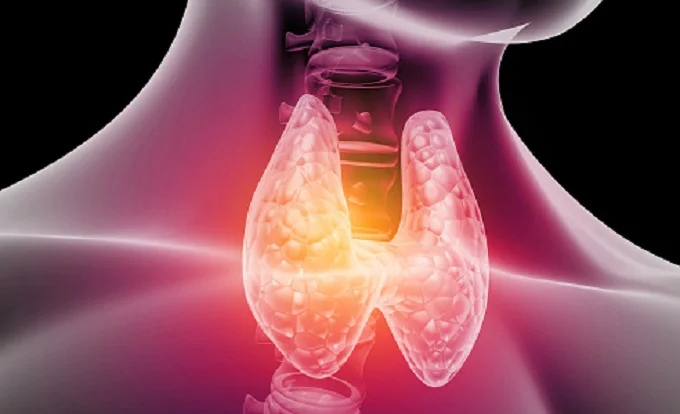8 signs of thyroid dysfunction everyone should know about

The thyroid gland is a small butterfly gland located in the front of the neck, just below Adam’s apple. This is a small but very important organ, and if a malfunction occurs, this will certainly affect the well-being and work of the whole body.
In this article, there are 8 essential thyroid dysfunction symptoms you should be aware of.
Symptoms of thyroid disease
Excess weight or rapid weight loss
Hypothyroidism occurs in 19 women out of 1000 and in 1 man in 1000. It is an endocrine disease in which the thyroid gland produces insufficient amounts of hormones – thyroxine and triiodothyronine – leading to a slowdown in metabolism.
Overweight and hypothyroidism are closely related. It happens that a woman has tried all methods of losing weight, but the weight remains the same. This fact may indicate a thyroid disorder.
Hyperthyroidism (thyrotoxicosis) is a clinical syndrome caused by an increase in the hormonal activity of the thyroid gland and characterized by excessive production of thyroid hormones – T3 and T4.
Hyperthyroidism is characterized by changes in metabolism and accelerated basal metabolism, such as weight loss with increased appetite. At the initial stage of the disease, the appearance may change for the better, the woman loses weight, and her skin is less oily.
If you notice such signs but did nothing on purpose, do not rush to rejoice. This is a reason to contact an endocrinologist.
Fatigue
Various reasons can cause fatigue. But if a thyroid problem causes fatigue, it can be difficult to stay alert and energetic all day. Even if after a full 8 hours of sleep you feel lethargic, a kind of lethargy, and so on from day to day – all this is a reason to check the thyroid gland.
The brain also suffers from thyroid dysfunction. Insufficient iron production can lead to memory loss, while overactive iron can cause difficulty concentrating.
Depression and anxiety
We often interpret such symptoms as tearfulness, irritability, nervousness, panic disorder, depression as a manifestation of overwork and nervous exhaustion.
But the matter can be much more serious. Hypothyroidism can cause depression, and hyperthyroidism can cause panic attacks and anxiety.
Constant feeling of cold or heat
People with thyroid dysfunction often find that their reactions to temperature do not match the sensations of others. People with hypothyroidism feel strangely cold, and people with hyperthyroidism often feel very hot around.
Dry hair and skin
Hair loss and the thyroid gland are closely related due to hormonal changes. In addition, the fact that the hair suddenly became brittle, coarse, and thin also indicates problems with the thyroid gland.
Dry skin is also one of the symptoms of thyroid disorders. The fact is that the malfunctioning of the thyroid gland and its diseases provoke a malfunction of metabolic processes in the skin.
Discomfort and enlargement of the neck
If the thyroid gland is not working properly, it often becomes inflamed and enlarged. When this happens, the person may experience pain and discomfort in the larynx, swelling in the neck, snoring, and hoarseness in the voice.
Problems with the gastrointestinal tract
Digestive disorders – constipation or diarrhea are also signs of thyroid dysfunction. Hormones affect the rate of secretion of digestive juices and gastrointestinal motility.
Hyperthyroidism often leads to diarrhea, and hypothyroidism can cause constipation.
Menstrual problems and decreased libido
Changing the regular cycle is a serious reason to see a gynecologist. Thyroid hormones have a huge impact on female reproductive function. In women, a deficiency in thyroid hormones can cause excessively heavy and frequent menstruation.
Hormones and s3x are known to be closely related to each other. This also applies to hormones produced by the thyroid gland. A malfunction of the thyroid gland can cause a decrease in s3x drive.
People often do not take these signs seriously, blaming them on workload and overwork. But the problems can be much more complex. If you find yourself with some of the symptoms described above, contact a specialist. It is very important to recognize problems with the thyroid gland in time and help it. Be healthy.




